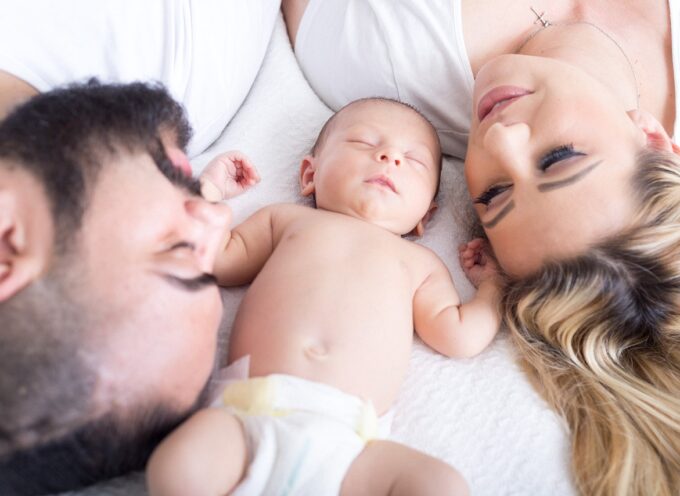Recently I received a letter from a college student who had registered for a course in “reproductive rights” at a nearby university. Having recently become a Christian, he was revisiting the pro-choice position he’d held up until this point. In the letter, he asked for my evaluation of the pro-choice position. Given the fact that other people wrestle with this question, I thought I’d reproduce a small portion of my response to him:
“Reproductive rights.” That’s an interesting phrase, isn’t it? It makes it sound as if the political science faculty at the university want to protect a woman’s right to have children—a “right to reproduce.” But I can guarantee that is not what they want.
They’re not trying to protect a woman’s right to have as many babies as she wishes without her husband or lover or parents forcing her to take the unborn life in her womb. Instead, their concern is to guarantee that a woman has the right to terminate the unborn life in her womb. In other words, “reproductive rights” is a handy linguistic camouflage intended to prevent people from having to talk about “termination rights.” But I’d imagine Termination Rights 201 doesn’t feel as easy on the eyes when one reads the Fall semester’s course catalog.
But let’s get beyond the terminology to address the question at the heart of your letter. What exactly is this unborn human being? There are four prominent answers to this question: the unborn being could be a part, parasite, property, or person.
A Part?
One answer is that the unborn being is a part of the woman’s body. Proponents of this view claim that procuring an abortion is similar to cutting one’s hair or clipping one’s toenails. However, this view runs up against common sense and scientific consensus. Think about it. Every part of a woman’s body—including her toenail clippings—contains her unique DNA. But the unborn being has its own, unique, DNA. Therefore, the unborn being cannot be a part of the woman’s body. Right?
A Parasite?
Another claim, made famous by the philosopher Judith Jarvis Thomson, is that the unborn being is essentially a parasite that feeds off the mother’s body. Thompson argues that the mother has a right to decide what happens to her body, and that the mother’s “right to choose” trumps the unborn being’s right to life. So at least there’s an admission that we’re dealing with something living, even if the living being is reduced to the level of a parasite. One of the key problems with this, however, is that the same logic can be used to justify infanticide. Newborns feed off their mother’s body, but hardly anyone makes the argument that mothers have the right to kill their children until they are weaned. Eh?
A Piece of Property?
A third view is that the unborn being is a piece of property. You might be surprised that this is how our American legal system treats the unborn. When the Supreme Court case Roe v. Wade legalized abortion, the justices appealed to the 14th amendment’s “Due Process clause,” which says the state cannot deprive a person of life, liberty, or property without due process.
The Supreme Court was saying that to restrict a woman’s ability to terminate the unborn being inside of her would be to deprive her of a basic liberty protected by the Due Process Clause. But what sort of liberty is the right of abortion? It is the liberty to treat the unborn being as her “personalty,” the legal word for a movable piece of property (as opposed to an immovable piece of property such as a tract of land).
At this point, I think we have to step back for a moment to catch our breath. When I reflect on this fact, I can hardly breathe. Do Americans still think it’s OK for one human being to own another?
Yes, many progressive Americans and some conservative Americans do. Or, at least they pretend to. Under Roe v. Wade, the unborn being is treated as property to which the woman has almost-exclusive rights. The state can only interfere with these rights when they have a compelling interest and then only after the first trimester. Until that time the woman has the right to keep her property or to “dispose” of it.
Do I need to point out the deep irony we are experiencing, especially in a nation such as the United States, which claims to have left slavery in the dust of distant history? There is no other situation in which an American can legally own another human being, much less choose to kill it. The Supreme Court majority, recognizing the irony, decided to make a distinction that runs against common sense: they argued that an unborn human being is not a person.
I know, I know. You’re thinking, “How in the world do you say that someone is a living human being, but isn’t a person?” Isn’t that an a=a situation?
Sadly, no. Again, reflect back upon the history books. Historically, many nations have decided that certain groups of human beings should not be considered people. They denied legal and/or moral standing to slaves, women, infants, Jews, or people of other nations or ethnic groups. The United States is no exception to this historical sin.
On the positive side, in recent years, America decided to give proper legal and moral status to an entire class of human beings—black slaves—who previously had been treated as property. On the negative side, just a few years later, America decided to rescind proper legal and moral status to an entire class of human beings—unborn babies—who previously had been treated as human persons.
By what logic could it be decided that another human being is not a person? The famous and influential ethicist Joseph Fletcher, for example, believed that a human with an IQ below forty might not be a person, and those with an IQ below twenty are definitely not persons. Using a similar line of reasoning based upon a person’s consciousness and functionality, Princeton philosopher Peter Singer believes that patients who have Alzheimer’s and young infants are not persons because they have not achieved the same level of consciousness and functionality as a more mature human being. Therefore, it is not necessarily morally wrong to kill them.
What is my response to SCOTUS, Fletcher, and Singer? Well, for starters, they should be careful to follow the logic of the argument. The recension of a baby’s moral and legal status could be used by future generations to rescind the legal and moral status of blacks, Jews, elderly people, immigrants, Christians, or Muslims. Et, as they say, cetera.
Similarly, if taken to its logical conclusion, the argument from consciousness and functionality will backfire also. For example, it could be used to justify killing philosophers and Supreme Court justices. Think about it. Every night these philosophers fall into a state of prolonged unconsciousness, whereby they would no longer, under their definition classify as “people.” We call it “sleep.” And we all agree that you can’t just kill philosophers or lawyers in their sleep. Even the nasty ones. Eh?
A Person
An unborn being should not be considered a part of the mother’s body, a parasite in the mother’s body, or a piece of the mother’s property. Instead, the unborn being should be viewed as a person who God created in his image and likeness.
Scientifically, we should recognize the scientific evidence that the unborn being in the mother’s womb is a human being.
Theologically, we should recognize that God created all human beings, including unborn ones, in his image (Gen 1:26). He knows unborn human beings intimately and individually, even consecrating them for special service even while they are in the womb (Lk 1:41). He considers a baby’s life equally valuable as an adult’s life (Ex 21:22-25), commands us not to kill innocent human beings (Ex 20:13), and loves humanity enough that he sent his own Son to die to save us from our sins (Jn 3:16). There is no reasonable Christian argument for elective abortion because God calls us to value human lives in the way he values them.
Practically, we should recognize that unborn beings are not essentially different from born beings. As Scott Klusendorf notes, unborn beings are different from born ones in only four ways: size (babies are smaller) level of development (babies are less developed), environment (babies are in the womb), and degree of dependency (babies need their mothers to survive).
Sociologically, abortion hurts everybody. Most significantly it hurts and kills the baby, but it also hurts the mother, the father, women in general, men in general. It undermines marriages and families, justice and equality, and our nation’s systems of checks and balances. It minimizes our nation’s mediating institutions and hurts society at large by normalizing lethal violence as a solution to our problems.
For these reasons, we as Christians should not grow weary or rest until our nation rectifies its greatest legalized injustice, its rejection of liberty and equality for an entire class of people—unborn human beings. Neither should we neglect to declare God’s grace toward any person who has taken part in an abortion. Toward abortive mothers, God offered his Son to liberate her from residual guilt; to fathers who approved of, paid for, or pressured an abortion, God offers himself as a Father whose Son was killed to set them free; to abortion doctors, God reveals himself as the Great Physician who offers eternal life to those who have caused temporal death. Just as God has extended his grace to me—a great sinner—so offers grace to those who have committed abortive sins.
Subscribe
Never miss a post! Have all new posts delivered straight to your inbox.








As I see it, your logic in this essay is unassailable. I was particularly struck by the sociological argument you advance. Abortion does, indeed, hurt everybody. When our legal system supports the proposition that human life may be destroyed when it is inconvenient to someone, we are all endangered. A very powerful man in our society is said to have opined that the world would be a better place if its human population were cut in half. So who’s going to be “sacrificed” to that end? The Syrians? The Yemenis? Hitler thought that the Jews, Gypsies, Russians and Poles should be killed or enslaved to make the world a better place for the Germans. But he initially had targeted the physically and mentally disabled of his own country.
On the other hand, a political party’s profession to be “pro-life” rings hollow if–having supported the unborn child’s right to life–it then goes on to throw the child under the bus, so to speak. This it may do by supporting policies that deny families access to affordable health care, for example. Infant mortality rates vary considerably according to where children live and to what socioeconomic group they belong.
Both abortion and social injustice are blights upon the life of this extremely wealthy nation. But many of us just look the other way and go shopping, or pull out a six-pack and watch the game, so we don’t have to think about such topics.